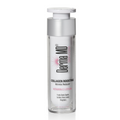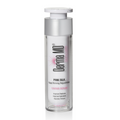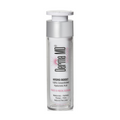Skincare in your 50's - LIGHTENING & BRIGHTENING
Pigmentation issues such as dark spots, age spots, and uneven skin tone are common concerns in your 50s due to factors like sun damage, hormonal changes, and decreased skin cell turnover. Here are some effective strategies for managing pigmentation issues in your 50s:
-
Sun Protection: Protecting your skin from further sun damage is crucial in managing pigmentation issues. Wear Sun-Protect with SPF 30 every day, even on cloudy days, and reapply sunscreen every two hours when outdoors.
-
Brightening Ingredients: Incorporate skincare products containing brightening ingredients to fade dark spots and even out skin tone. Look for ingredients like:
- Vitamin C: A potent antioxidant that helps reduce pigmentation and brighten the complexion. Collagen Boosting Vitamin C Lotion
- Niacinamide: Also known as vitamin B3, niacinamide can help fade dark spots and improve overall skin texture. Wasabi Refining Toner
- Alpha Hydroxy Acids (AHAs): AHAs like glycolic acid and lactic acid exfoliate the skin, promote cell turnover, and fade pigmentation.
- Vitamin K: Kojic acid inhibits melanin production and can help lighten dark spots and hyperpigmentation. 3+ Complex Eye Cream
- Tranexamic Acid: a potent compound that interferes with melanin production, leading to a reduction in dark spots, hyperpigmentation, and melasma. Additionally, it possesses anti-inflammatory attributes that can alleviate skin redness and inflammation. Chebula Tranexamic Acid Pigmentation Serum
-
Retinoids: Incorporate retinoids into your skincare routine to promote skin renewal, improve texture, and fade pigmentation. Retinoid NITErepair - SKINbrightener can help reduce the appearance of dark spots and fine lines over time.
-
Chemical Peels: Consider professional chemical peels to exfoliate the skin, promote cell turnover, and fade pigmentation. Chemical peels containing AHAs, BHAs, or trichloroacetic acid (TCA) can help improve skin tone and texture with regular treatments.
-
Laser Therapy: Laser treatments, such as intense pulsed light (IPL) therapy or fractional laser resurfacing, can target pigmentation issues and even out skin tone. These treatments work by breaking down melanin deposits in the skin and stimulating collagen production for a more uniform complexion.
-
Hydration: Keep your skin well-hydrated to support its natural barrier function and improve overall skin health. Hydrated skin is more resilient and better able to repair itself, which can help reduce the appearance of pigmentation issues.
-
Avoid Irritating Ingredients: Be cautious with skincare products that can exacerbate pigmentation issues or cause inflammation, such as harsh exfoliants, alcohol-based products, and abrasive scrubs. Opt for gentle, non-irritating formulations instead.
-
Consult with a Dermatologist: If pigmentation issues persist despite using over-the-counter products, consider consulting with a dermatologist or skincare professional. They can assess your skin's specific needs and recommend personalized treatment options, such as prescription-strength topical medications or in-office procedures.
Consistency is key when addressing pigmentation issues, and results may take time to appear. Be patient and diligent with your skincare routine, and remember to protect your skin from further sun damage to prevent the worsening of pigmentation issues.





